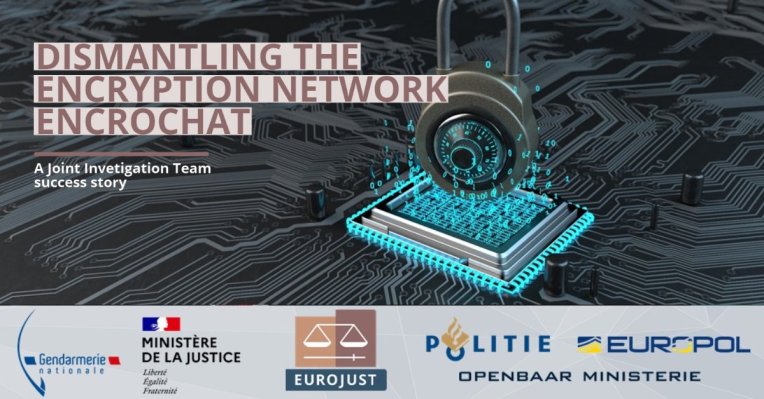Hundreds of alleged drug dealers and other criminals are in custody today after police in Europe infiltrated an encrypted chat system reportedly used by thousands to discuss illegal operations. The total failure of this ostensibly secure method of communication will likely have a chilling effect on the shadowy industry of crime-focused tech.
“Operation Venetic” was reported by various police agencies, major local news outlets, and by Motherboard in especially vibrant form, quoting extensively people apparently from within the groups affected.
The operation involved hundreds of officers working across numerous agencies in France, the Netherlands, the U.K., and other countries. It began in 2017, and culminated two months ago when a service called EncroChat was hacked and the messages of tens of thousands of users exposed to police scrutiny.
EncroChat is a step up in some ways from encrypted chat apps like Signal and WhatsApp. Rather like Blackberry once did, EncroChat provided customized hardware, a dedicated OS, and its own servers to users, providing an expensive service costing thousands per year rather than a one-time purchase or download.
Messages on the service were supposedly very secure and had deniability built in by letting conversations be edited later — so theoretically a user could claim after the fact they never said something. Motherboard’s Joseph Cox has been following the company for some time and has far more details on its claims and operations.
Needless to say those claims were not entirely true, as at some point in early 2020 police managed to introduce malware into the EncroChat system that completely exposed the conversations and images of its users. Because of the trusted nature of the app, people would openly discuss drug deals, murders, and other crimes, making them sitting ducks for law enforcement.
Throughout the spring criminal operations were being cracked open with alarming (to them) regularity, but it wasn’t until May that users and EncroChat managed to put the pieces together. The company attempted to warn its users and issue an update, but the cat was out of the bag. Seeing that its operation was now exposed, the Operation Venetic teams struck.
Arrests across the several countries involved (there were numerous sub-operations but France and the Netherlands were the primary investigators) total near a thousand, but exact numbers are not clear. Dozens of guns, tons (metric, naturally) of drugs and the equivalent of tens of millions of dollars in cash were seized. More importantly, the chat logs seem to have provided access to people higher up the food chain than ordinary busts would have.
That the reportedly most popular of encrypted chat companies focused on illegal activities could be so completely subverted by international authorities will likely put a damper on its competition. But like other, more domestic challenges to encryption, such as the perennial complaints by the FBI, this event is more likely to strengthen the tools in the long run.

